
The Racket is a 1928 American silent crime drama film directed by Lewis Milestone and starring Thomas Meighan, Marie Prevost, Louis Wolheim, and George E. Stone. The film was produced by Howard Hughes, written by Bartlett Cormack and Tom Miranda, and was distributed by Paramount Pictures. It was adapted from Cormack's 1927 Broadway play The Racket.
Two Arabian Knights (1927) is an American silent comedy film, directed by Lewis Milestone and starring William Boyd, Mary Astor, and Louis Wolheim. The film was produced by Howard Hughes and was distributed by United Artists. The screenwriters were James T. O'Donohue, Wallace Smith, and George Marion Jr.
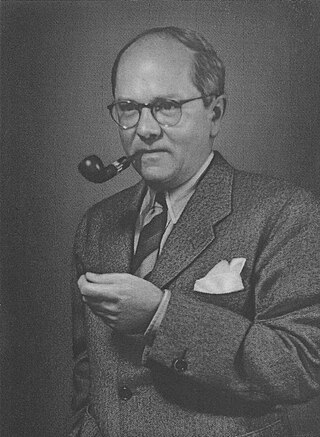
Richard Armstrong Whiting was an American composer of popular songs, including the standards "Hooray for Hollywood", "Ain't We Got Fun?" and "On the Good Ship Lollipop". He also wrote lyrics occasionally, and film scores most notably for the standard "She's Funny That Way".
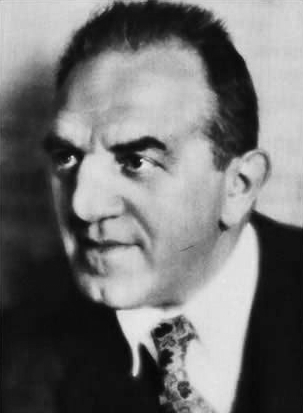
Louis Robert Wolheim was an American actor, of both stage and screen, whose rough physical appearance relegated him to roles mostly of thugs, villains and occasionally a soldier with a heart of gold in the movies, but whose talent allowed him to flourish on stage. His career was mostly contained during the silent era of the film industry, due to his death at the age of 50 in 1931.

Tempest is a 1928 American synchronized sound drama film directed by Sam Taylor. While the film has no audible dialog, it was released with a synchronized musical score with sound effects using both the sound-on-disc and sound-on-film process. V. I. Nemirovich-Dantchenko wrote the screenplay and William Cameron Menzies won an Academy Award for Best Art Direction for his work in the film in 1929, the first year of the awards ceremony. John Barrymore and Camilla Horn star in the film, with Louis Wolheim co-starring.

Frank Coghlan Jr. also known as Junior Coghlan, was an American actor who later became a career officer in the United States Navy and a naval aviator. He appeared in approximately 129 films and television programs between 1920 and 1974. During the 1920s and 1930s, he became a popular child and juvenile actor, appearing in films with Pola Negri, Jack Dempsey, William Haines, Shirley Temple, Mickey Rooney, William Boyd and Bette Davis. He appeared in early "Our Gang" comedies, but he is best known for the role of Billy Batson in the 1941 motion picture serial, and first comic book superhero film, Adventures of Captain Marvel. Coghlan later served 23 years as an aviator and officer in the U.S. Navy, from 1942 to 1965. After retiring from the Navy, he returned to acting and appeared in television, films, and commercials. He published an autobiography in 1992 and died in 2009 at age 93.

River's End is a 1930 American Pre-Code Western film directed by Michael Curtiz and starring Charles Bickford and Evalyn Knapp. Bickford plays two roles, a Royal Canadian Mounted Police (RCMP) sergeant and the man he is after. The film is the second of three adaptations of the bestselling novel The River's End by James Oliver Curwood, the others being released in 1920 and 1940.

Going Places is a 1938 American musical comedy film directed by Ray Enright. Dick Powell plays a sporting goods salesman who is forced to pose as a famous horseman as part of his scheme to boost sales and gets entangled in his lies.
A Harp in Hock, also known as The Samaritan, is a lost 1927 American silent melodrama film directed by Renaud Hoffman, produced by DeMille Pictures, and distributed by Pathé Exchange. The film starred Rudolph Schildkraut, Junior Coghlan, May Robson, and Bessie Love, and was based on the short story by Evelyn Campbell.

Thumbs Up is a 1943 American musical drama film producted by Albert J. Cohen for Republic Pictures and directed by Joseph Santley. The film stars Brenda Joyce, Richard Fraser and Elsa Lanchester. The screenplay was written by Frank Gill Jr. based on a story idea by Ray Golden and Henry K. Moritz. Musical direction was by Walter Scharf, words and music by Sammy Cahn and Jule Styne respectively. The film was released on July 5, 1943.

It Pays to Advertise is a 1931 American pre-Code comedy film, based on the play of the same name by Roi Cooper Megrue and Walter C. Hackett, starring Norman Foster and Carole Lombard, and directed by Frank Tuttle.

Gentleman's Fate is a 1931 American pre-Code drama film directed by Mervyn LeRoy and written by Leonard Praskins. The film stars John Gilbert, Louis Wolheim, Leila Hyams, Anita Page, and Marie Prevost. The film was released on March 7, 1931, by Metro-Goldwyn-Mayer, just seventeen days after Wolheim's untimely death.

Bachelor of Arts is a 1934 American drama film directed by Louis King and written by Lamar Trotti. The film stars Tom Brown, Anita Louise, Henry B. Walthall, Mae Marsh, Arline Judge and Frank Albertson. The film was released on November 23, 1934, by Fox Film Corporation.
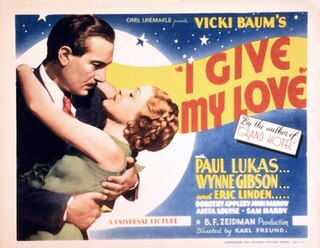
I Give My Love is a 1934 American drama film directed by Karl Freund and written by Doris Anderson and Milton Krims. The film stars Paul Lukas, Wynne Gibson, Eric Linden, Anita Louise, John Darrow and Dorothy Appleby. The film was released on July 17, 1934, by Universal Pictures.
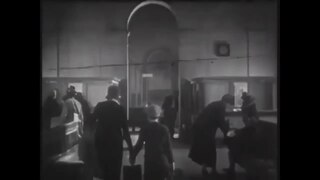
Let 'Er Go Gallegher was a 1928 silent crime comedy film directed by Elmer Clifton and starring Frank Coghlan Jr., Harrison Ford and Elinor Fair. The film is based on the Gallegher character from American author Richard Harding Davis' 1891 publication Gallegher and Other Stories. The film's sets were designed by the art director Stephen Goosson.

Marked Money is a 1928 American synchronized sound action film directed by Spencer Gordon Bennet and starring Tom Keene, Tom Kennedy and Virginia Bradford. While the film has no audible dialog, it was released with a synchronized musical score with sound effects using the RCA Photophone sound-on-film process.

The Final Extra is a 1927 American silent crime film directed by James P. Hogan and starring Marguerite De La Motte, Grant Withers and John Miljan.

Cause for Divorce is a 1923 American silent drama film directed by Hugh Dierker and starring Fritzi Brunette, Helen Lynch, and Pat O'Malley.

Lover's Island is a 1925 American silent drama film directed by Henri Diamant-Berger and starring Hope Hampton, James Kirkwood, and Louis Wolheim.
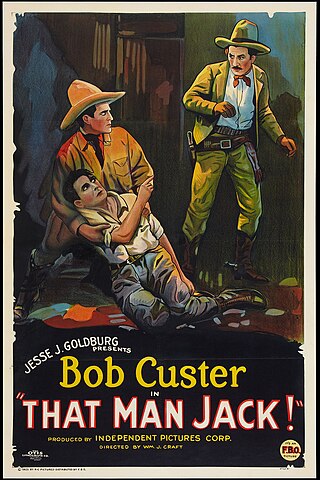
That Man Jack! is a 1925 American silent Western film directed by William James Craft and starring Bob Custer, Mary Beth Milford, and Hayford Hobbs.


















